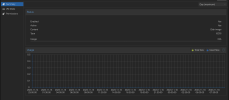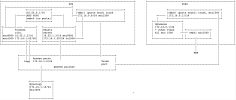I'm not able to configure Proxmox correctly to access any iSCSI share (Truenas and Synology); it connects to server but doesn't access/see share. Esxi (same server - same IP, only booted by esxi) connects to Truenas without any problem
On top of that it is the same case with NFS shares in Truenas but it access correctly NFS shares in Synology. All NFS shares are set to use version 4 or 4.1.
How to troubleshoot it?
On top of that it is the same case with NFS shares in Truenas but it access correctly NFS shares in Synology. All NFS shares are set to use version 4 or 4.1.
How to troubleshoot it?



